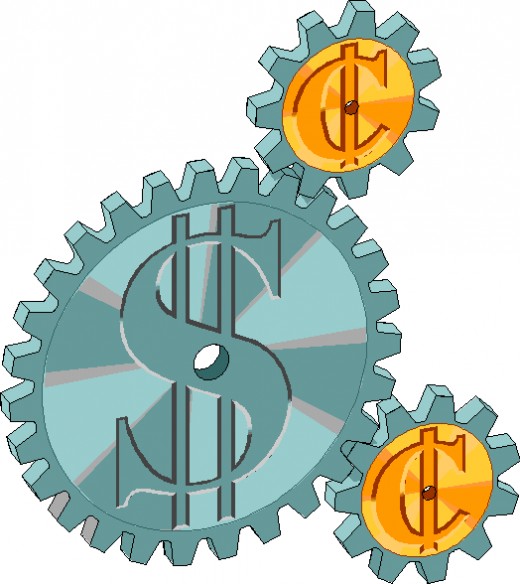Tips for Dealing with Frightening Changes in the Economy

Tips for Dealing with a Frightening Economy
Many people right now are finding themselves starting to feel a little bit of fear about the state of the economy. Gas prices keep on going up. The stimulus check has long since been spent. And people are wondering what they are going to do if it turns out that they can't afford to maintain their way of life as the economy continues to change. You don't have to cave in to these fears but you also shouldn't move forward into the future with your blinders on.
Here are some tips to follow for establishing some financial security as we move into a future where the state of the economy simply isn't clear:
- 1. Learn to budget. The majority of people really aren't all that good at budgeting but it's one of the most crucial skills that you can learn if you're going to be able to make it in any economy. Budgeting means figuring out what your income and expenses are and setting boundaries on your spending that will allow you to save some money each month. This is a skill that takes some time to learn but it's not particularly difficult. It gets easier with time so get started learning this one now!
- 2. Start or add to savings. One of the best ways that you're going to create a true sense of financial security for yourself is by making sure that you have some money in the bank. This way, you know that you'll be able to survive for awhile even if prices on everything go up or your face a downsizing situation with your job. Cut back in whatever area makes the most sense in order to start putting ten percent of your paycheck towards a savings account.
- 3. Pay off outstanding debt. If you do have extra money, now is a good time to pay off your credit cards and other outstanding loans. That way you don't enter a precarious economy with a load of debt on your shoulders. Savings accounts don't do you a lot of good if you're spending a bunch of money each month on paying the minimum due on your credit cards. Pay them off first then start that savings account.
- 4. Figure out where you can reduce your spending. You should identify the areas of the life where you spend the most money and determine whether or not these are areas that you can cut back on. You may spend a lot of money on new clothes that you don't really need. Try to scale back by fifty percent in at least one area of spending. You can scale back to a lesser degree (ten percent to thirty percent) in other areas as you see fit. This will help you get used to buying less and will also help you save up money more quickly.
- 5. Start walking. One of the areas of spending that is going up really quickly is the cost of gas. That's not likely to change so you should start getting used to the idea that the new economy really requires us to reduce our fuel usage. Start getting in the habit of doing more walking and biking, using public transportation or investing in a fuel-efficient vehicle.
- 6. Become a vegan. The cost of meat and dairy products has always been high in comparison to the cost of other food items. You don't have to give them up entirely but start getting used to making more vegetable-based meals in order to help you save money on groceries. This will allow you to maintain a healthy diet while dealing with the changes in the economy that are making it difficult to afford the same amount of groceries as what you bought in the past.
- 7. Read less news. Yes, the economy is in a bad position. However, it's not so dire that you need to be checking the stocks and the bank news every single day. Reading up about the problems with the economy is probably going to cause you unnecessary fear about the state of the economy and the state of your own personal finances. You should try reading less news - still enough to know about major issues that are going on but not so much that you feel a constant sense of fear about the future.





